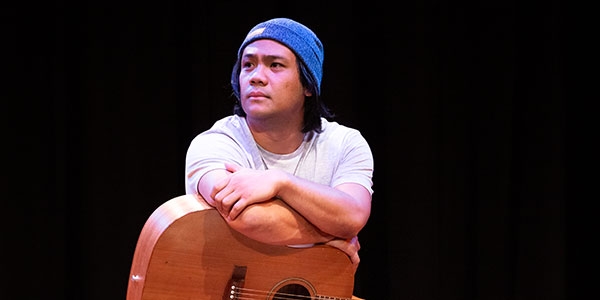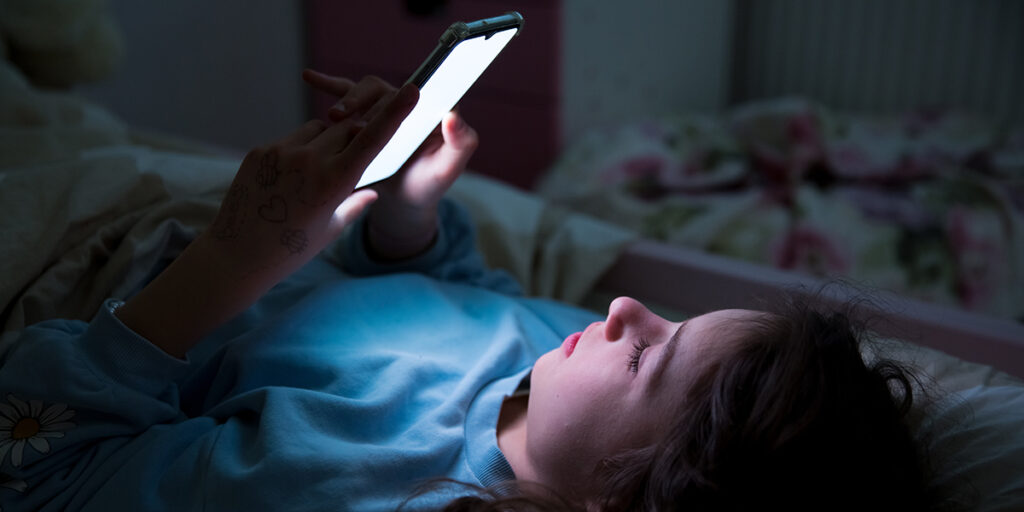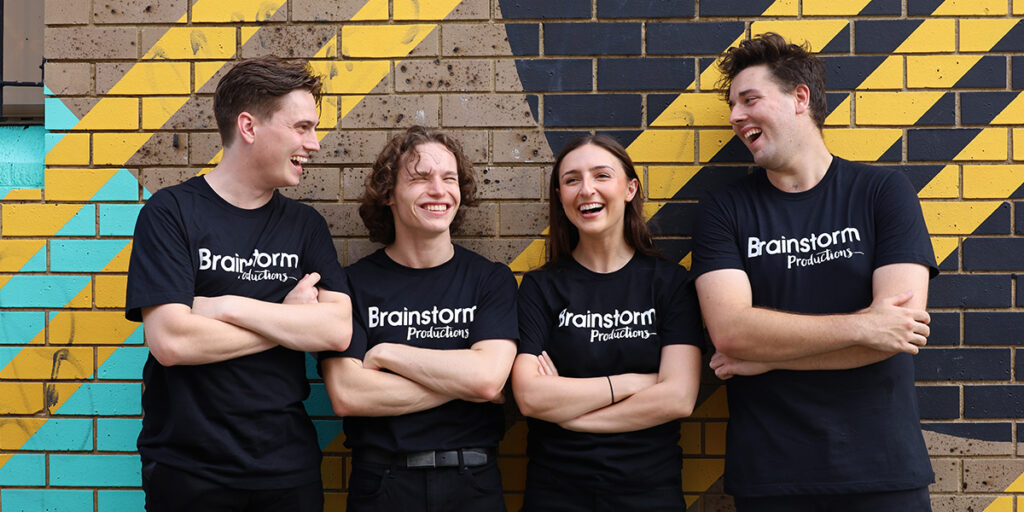Adolescence is a period of immense physical and emotional vulnerability. For most of us vulnerability has negative connotations – we see it as a weakness and something we should try to avoid. Vulnerability is defined as being easily hurt, influenced or attacked, so it makes sense that we try to avoid it at all costs!
On the other hand, vulnerability is necessary for meaningful human connection. It is the foundation upon which healthy relationships are built.
In 2010, a social worker and qualitative researcher from the University of Houston delivered a TED talk about the power of vulnerability. In her presentation, which has since accumulated 42 million views on YouTube, Brene Brown shared the results of her extensive research on human relationships. She found the people who were most connected were those who embraced their vulnerability and believed they were worthy of love and belonging. These were the people who had the courage to be imperfect, authentic, and compassionate to themselves and others. She concludes that while vulnerability is at the core of shame and fear, it is also the birthplace of joy, creativity, belonging and love.
Just as adolescence is a vulnerable period, it is also a time of great opportunity. If young people are too guarded, they may miss out on important social and emotional learning experiences. They may feel lonely, disconnected and unable to be themselves. This is the balancing act of adolescence – taking risks so we can grow, while also learning how to survive and feel safe in the world.
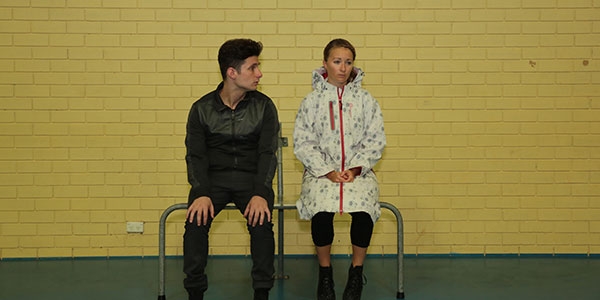
For many young people, social media offers a space for them to be emotionally vulnerable. To share their innermost thoughts, feelings, hopes and fears with like-minded people. The perceived anonymity of online interactions can provide a sense of safety. Sadly, we live in a time when vulnerability is not only celebrated online but also exploited. Our online interactions can expose us to a multitude of risks, including bullying, privacy breaches, online grooming and abuse.
How do we help young people embrace vulnerability while keeping them safe?
At Brainstorm Productions we try to consider this balance in everything we do.
Our live theatre performances encourage emotional vulnerability in a safe environment, to support mental health programs for high schools and primary schools. We look for the vulnerability in every character and highlight this as a strength. When a character behaves in a way that is harmful to themselves or others, we try to identify their unmet needs and explore how they can have their needs met in a healthy way.
We are always mindful of the vulnerability of our audiences. We want them to feel emotionally connected, while at the same time ensuring they have support from the school and know how to access help.
We encourage our young actors to be vulnerable in their performances and authentic in their interactions with students. At the same time, we provide them with emotional and practical support, and ensure they maintain appropriate boundaries and look after their mental health. We have staff who are trained in Mental Health First Aid and we link our actors in with resources such as the Arts Wellbeing Collective.
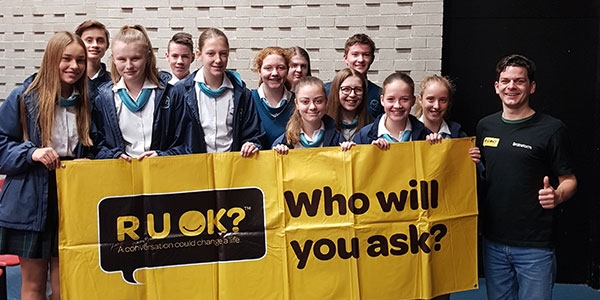
Vulnerability is also encouraged through our partnership with R U OK?, a charity that provides people with the information and confidence to start difficult but potentially life-changing conversations. Their 2019 campaign ‘Trust the Signs, Trust your Gut, and ask R U OK?’ urges people to look out for the signs that someone may be struggling with life and ask how they’re coping. It takes courage to reach out to someone; however, moments of vulnerability can change lives.
So we’ve put together some tips for nurturing vulnerability in young people while also helping them stay safe, both online and offline.
1. Be a role model
If we are authentic and open in our relationships, we will show young people that we are willing to connect in a meaningful way. This doesn’t mean over-sharing or disclosing unnecessary personal information. It means approaching your interactions with authenticity, compassion and openness, so they know they can come to you when they’re at their most vulnerable.
2. Help them make informed choices
Initiate open conversations and provide practical information about difficult choices they may face. Topics such as drugs, alcohol, mental health, sexuality and online safety can be tricky, but it’s important they feel comfortable to ask questions and discuss important issues with their parents, guardians, teachers, school counsellors or other trusted adults.
If they don’t feel comfortable having these conversations with you, tell them where they can access information and support. Websites such as reachout.com, headspace and Youth Beyond Blue offer age-appropriate, reliable and up-to-date information about a range of issues, to help them understand the risks and places they can go for help. The Office of the eSafety Commissioner offers a range of cyber safety education resources suitable for all ages. If young people are informed, they will make better choices.
3. Teach them about boundaries
Let them know they have a right to personal boundaries, and to speak up if something doesn’t feel good. Assertiveness skills will give them the confidence to maintain their boundaries with others, such as standing tall, making eye contact, and clearly stating what it is they don’t like and what they need in order to feel safe. It actually takes vulnerability to assert your boundaries in an authentic and respectful way.
4. Encourage appropriate online sharing
Encourage them to maintain appropriate boundaries on social media, by ensuring their accounts are private, only accepting requests from people they know and avoiding contact with strangers online. Help them understand the pros and cons of sharing personal information with friends online, including the risk that the it may be shared without their permission or knowledge.
Encourage them to stop and ask themselves before they post – is this something that would be better shared face-to-face with someone I know? Remind them there are always private and confidential options for disclosing personal and mental health struggles, such as school counsellors and psychologists, and online counselling services such as Kids Helpline and eHeadspace.
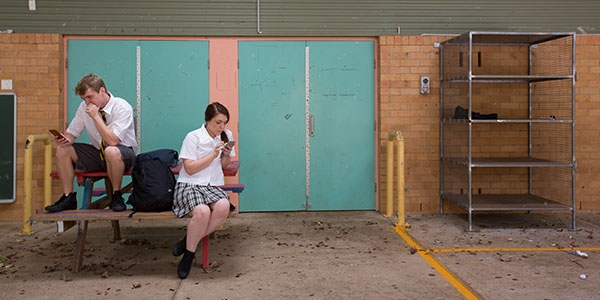
5. Help them connect with safe online communities
If they do share personal stories online, encourage them to use private messaging platforms with a select group of trusted friends, or join online communities that are moderated and set up to provide a safe, supportive space. Reachout.com offers a list of recommended online communities that can help young people feel more socially connected and less isolated, and allow them to share mental health strategies and positive help-seeking experiences.
6. Talk to them about values
Ask young people about the things that are important to them – the kind of person they want to be and the kind of life they want to live. Psychology professor Dr Kelly Wilson reminds us that “values and vulnerabilities are poured from the same vessel”. Opening up conversations about values will help young people get in touch with their vulnerability and move towards the things that matter to them.
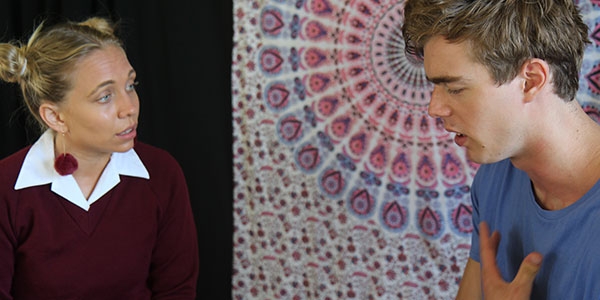
7. Accept all emotions
Make it clear that all emotions are acceptable to you – not just the happy, feel-good ones, but also the uncomfortable, painful ones. Help them to accept uncertainty and discomfort as natural parts of a meaningful life, rather than feelings they need to escape. We can’t selectively numb our emotions, so if we allow room for the difficult feelings then we also allow ourselves to experience positive emotions, such as love, gratitude, connectedness and belonging.
8. Let them know they are enough
Make it clear that you don’t expect them to be perfect, because nobody is. Embrace your own imperfections as a parent, teacher or a friend. Have the courage to admit when you’ve made a mistake and use this to repair the relationship and build closeness. Let them know they are worthy of love and belonging, no matter what. This will support their resilience, self-worth and mental health.
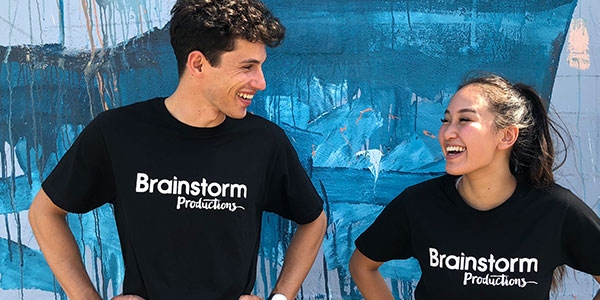
It’s important for young people to have a voice when it comes to their wellbeing and mental health. It can be empowering to be vulnerable and share their experiences with others. As long as they own their story and make informed choices about how they tell it.
Two of our actors, Tom and Kiara, tell us what vulnerability means to them and why it’s important to bring vulnerability to their performances.
To book one of our theatre-based student wellbeing, mental health and resilience programs for schools, go to: https://www.brainstormproductions.edu.au/.
– by Dr Ameika Johnson, clinical psychologist and mental health consultant at Brainstorm Productions.
This article was originally published on the Generation Next Blog. Generation Next provides education and information about the prevention and management of mental illness in youth to professionals, young people and the wider community. Find out more at www.generationnext.com.au.

